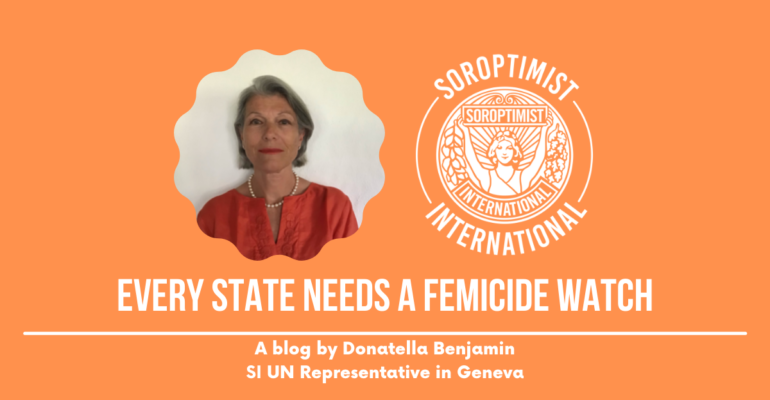Donatella Benjamin, SI UN Representative, reports from the Regional Forum on Sustainable Development for the UNECE, held on 6-7 April 2022 in Geneva.
“The Government of Spain and UN Women organised the side event “One femicide watch in every country to end the shadow pandemic”. Governments, women’s rights advocates, feminists, academia and civil society representatives across the region joined to share experiences and best practices on the establishment of femicide watches.
Femicide, or the killing of a woman or a girl because of her sex or gender, constitutes the most extreme form of violence against women (VAW). Accurate and consistent statistics are crucial to understanding and responding to trends of gender-related killings and related violence. However, cases of femicide are most often hidden among homicide statistics and statistics on femicide are often not collected or reported.
All panelists agreed that data on femicide remain difficult to access; consequently researchers, advocates, service providers and policymakers that could assist the prevention of femicide are denied to the right information. Reem Alsalem, UN Special Rapporteur on violence against women, its causes and consequences, noted that although progress was made since 2016 in putting in place observatories on VAW or femicide watch bodies, progress continues to be uneven, and while some countries and regions have put significant resources in setting these up, others have done very little. States, regional organisations and human rights mechanisms should strengthen collaboration with civil society organisations, to collect data and produce information on femicide.
In October 2020, following the outbreak of COVID-19, the UN relaunched a call urging states to systematically collect and publish comparable data on femicide. Victoria Rosell, Government Delegate against Gender-Based Violence at the Spanish Ministry of Equality, considered that this event was a good opportunity to reiterate the government’s responsibilities in terms of collecting data on the killings of women, since “femicide is the most extreme of crimes committed against women”.
Data collection on VAW cannot just be an administrative exercise for states and governments, but should be a tool for prevention, emphasised Myrna Dawson, Director of the Canadian Femicide Observatory for Justice and Accountability. “If it’s not a tool for prevention, why are we collecting data at all?”
The speakers highlighted the consequences of underestimating the scope of the femicide pandemic, especially during the COVID lockdown. The more data is available about the killings of women and girls, the more likely states will be able to correctly identify femicides and mobilise knowledge for effective violence prevention through research to inform policy making. In some countries, like Western Balkans or Switzerland, there is still no legal incrimination against femicide. As a result, civil society organisations work to put pressure on these states to incriminate femicide as a separate criminal act so that it can be effectively monitored.
The UN Special Rapporteur on violence against women concluded by urging all the participants to continue to call on states to establish femicide watches also to collect and publish each year comparable data on femicide or gender-related killings as part of the larger body of data on VAW.”
Recommended Reading:
Soroptimist International Position Paper: Gender-Based Violence

